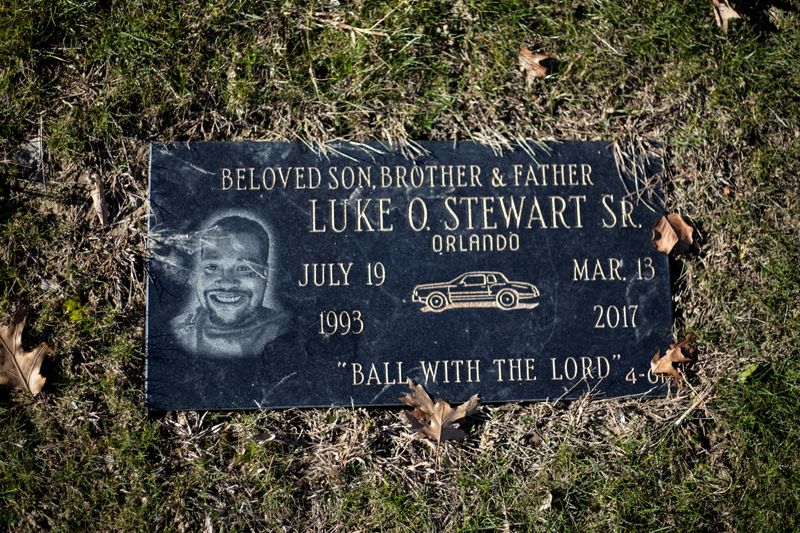By Andrew Chung
(Reuters) -The U.S. Supreme Court on Monday declined to take up a case over whether to make it easier to hold municipalities liable for civil rights violations committed by their police, rejecting an appeal involving a man fatally shot by an officer in Ohio.
The justices turned away the appeal filed by the mother of a 23-year-old man named Luke Stewart of a lower court ruling that threw out her claims made under federal law in a civil rights lawsuit against the city of Euclid and an officer involved in the 2017 incident.
Matthew Rhodes, the officer who shot Stewart in the chest and neck at close range, avoided liability for those claims through a legal defense called qualified immunity, even though the lower court determined that a jury might find that he unlawfully used excessive force.
The lawsuit filed by Mary Stewart accused Rhodes and another officer of using excessive force in violation of the U.S. Constitution's Fourth Amendment ban on unreasonable searches and seizures. The suit also accused Euclid police of a pattern of unconstitutional practices, particularly against Black people. Her son was Black. The officers are white.
Qualified immunity protects police officers and other types of government officials from civil litigation in certain circumstances, allowing lawsuits only when an individual's "clearly established" statutory or constitutional rights have been violated.
Reuters detailed https://www.reuters.com/investigates/special-report/usa-police-immunity-race Stewart's fatal encounter with police in an investigation published in December, part of series https://www.reuters.com/investigates/section/usa-police-immunity examining how, under the guidance of the Supreme Court, lower federal courts are increasingly granting qualified immunity to police accused of excessive force even when they have determined the officers acted illegally.
Stewart had been sleeping in his car when police came upon him. Rhodes entered the vehicle as Stewart tried to drive away. Rhodes punched Stewart, shocked and then struck him with a Taser, and finally shot Stewart in the chest and neck with a gun.
The suit turned up troubling revelations about Euclid's police department, such as training materials that included an illustration of an officer in riot gear striking a person lying on the ground, alongside the caption, "protecting and serving the poop out of you."
The Cincinnati, Ohio-based 6th U.S. Circuit Court of Appeals ruled in 2020 that while a jury could find that the use of deadly force by Rhodes was excessive, the officer was shielded by qualified immunity because no prior case had "clearly established" that this conduct was illegal.
While the appeals court called the training materials "distasteful" and "inappropriate," it threw out the claim against the city, saying that if an officer's violation was not clearly established, a municipality may not be held liable, either.
Qualified immunity has come under increasing scrutiny in the wake of protests in many U.S. cities last year against racism and police brutality over the death a Black man named George Floyd after a white Minneapolis officer knelt on his neck for nine minutes.
The Democratic-led U.S. House of Representatives in March passed policing reform legislation that would strip officers of qualified immunity. The bill faces an uphill battle https://www.reuters.com/world/us/senate-republican-says-us-police-reform-proposal-may-be-done-week-or-two-2021-04-21 in the Senate, with Republicans opposed to that provision and others.
